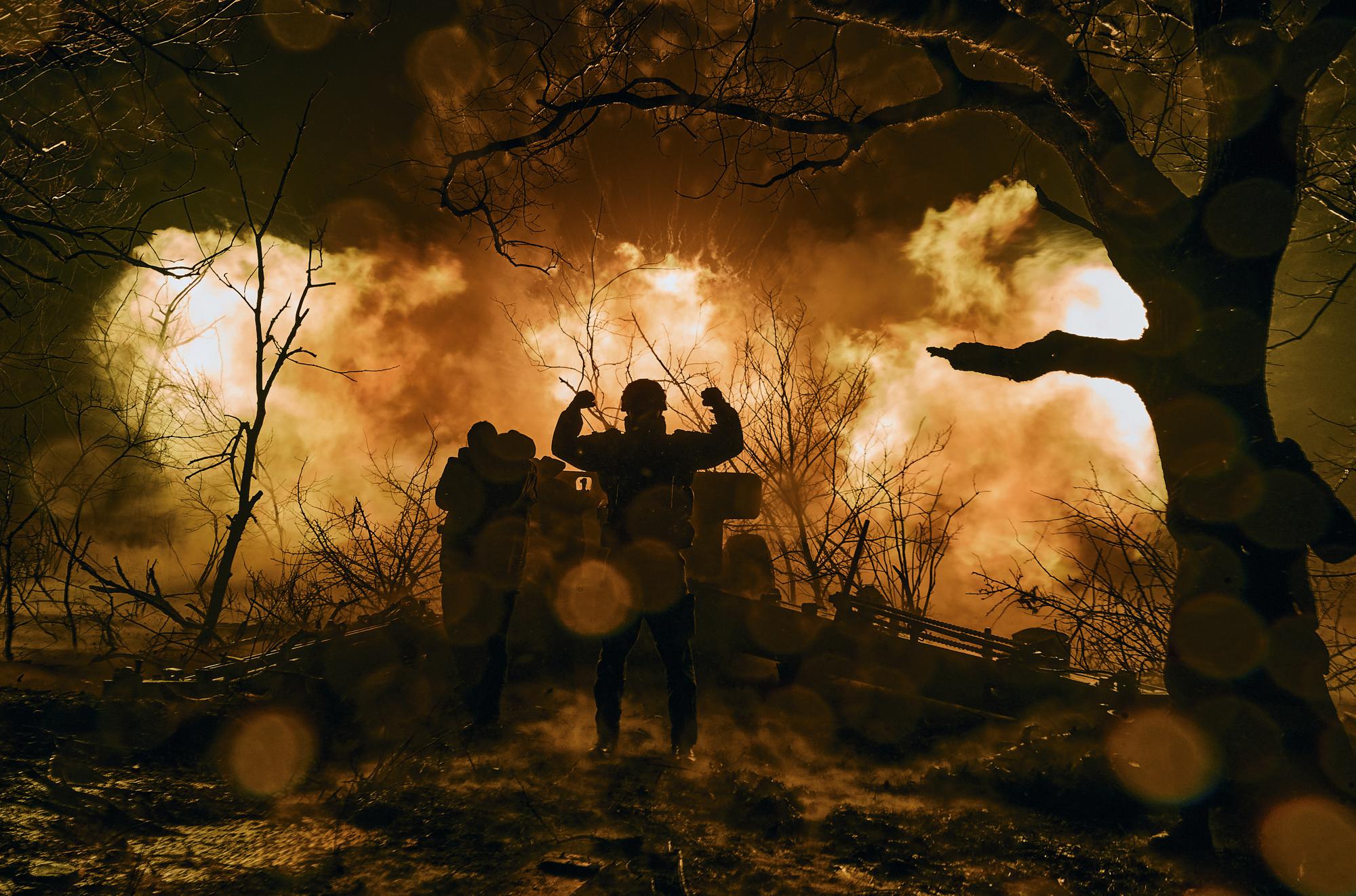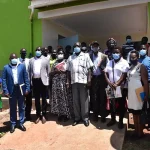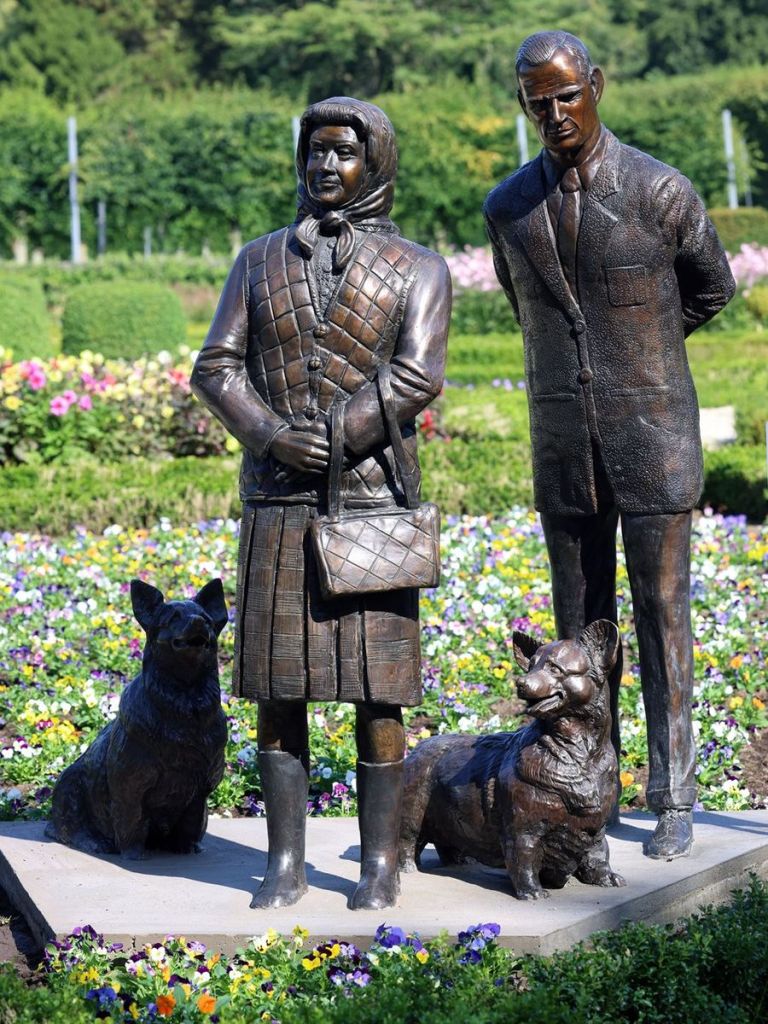Grinding Progress
Ukraine’s military initiated a counteroffensive in June, with hopes of replicating the previous year’s success by swiftly reclaiming Russian-held territories. However, initial efforts yielded minimal progress. In recent weeks, Ukrainian forces have made some headway, albeit capturing only a few small villages.
War, as history has shown, often unfolds as a protracted struggle. Spectacular victories, like Ukraine’s recapture of thousands of square miles in the northeast last year, are rare. More commonly, warfare involves a slow chipping away at the enemy’s defenses, exemplified by Ukraine’s recent retaking of a strategically important small village in the east. These incremental advances aim to set the stage for a major breakthrough, even if such a momentous event may never materialize.
This grinding nature of warfare is not unique to the conflict in Ukraine but has been observed in past conflicts like World War I, World War II, the Korean War, and the U.S. Civil War. According to George Barros, an analyst at the Institute for the Study of War, “War is not always the spectacular triumph; it’s largely the really boring stuff that you don’t see — all the groundwork setting up the conditions for the triumphs.”
In essence, Ukraine and its allies, including the U.S., may have set their expectations for the counteroffensive too high. Ukraine is pitted against one of the world’s most formidable militaries, and any significant retreat by Russia was bound to take years rather than mere months.
Deadly Defences
Ukraine’s initial counteroffensive plans relied on a combination of infantry, tanks, and armored vehicles supplied by Western nations to swiftly penetrate Russian forces in Ukraine’s southeast. The goal was to sever Russian troops in Crimea from those in the Donbas region, disrupting Russia’s ability to reinforce or resupply its armies in either area.
However, Ukrainian forces encountered more formidable Russian defenses than anticipated, including extensive minefields. Initial attempts to breach these defenses resulted in significant human and equipment losses. Consequently, Ukraine’s military altered its approach, shifting its focus to thinning out Russian defenses with artillery fire, clearing mines, and advancing cautiously with infantry.
Last month marked a turning point when Ukrainian forces achieved modest yet meaningful progress. They breached Russia’s first line of defense in the southeast and recaptured several small towns along the way. Currently, they are pursuing two main routes, one through the recaptured village of Robotyne and another that could potentially lead to the Russian-controlled coastal city of Berdiansk. Either route aligns with Ukraine’s primary objective of dividing Russian forces.
These gains underscore the gradual, methodical pace of warfare. Negotiating minefields with minimal casualties and eroding Russia’s defenses with artillery is a time-consuming process. For many months, it appeared that little progress was made due to stagnant battle lines. However, Ukraine has now advanced and may continue to make further strides.
Stacie Goddard, an international security expert at Wellesley College, aptly notes, “Offenses are not linear affairs.”
Breaking Through
Ukraine’s strategy involves widening the passages it has created through Russia’s initial defensive lines. For instance, Ukrainian forces could expand their control around towns like Robotyne, establishing broader corridors of territory. This expanded space could then facilitate the movement of more forces, enabling the execution of their original plan: deploying ground troops and armored vehicles in a swift counteroffensive.
The feasibility of these goals largely hinges on the strength of the remaining Russian defenses. As Eric Schmitt, a colleague covering national security, pointed out, “A lot depends on how strong these remaining Russian defenses are.”
However, time is of the essence. With the impending arrival of the rainy season in November, the terrain will become muddier and more challenging to navigate, potentially hindering major battlefield gains.
Meanwhile, Russian forces have intensified their attacks in the northeast. Their aim is to regain some of the territory lost last year and compel Ukraine to divert its troops and resources away from the southeastern front. If Ukraine’s southeastern forces are sufficiently depleted, the final push of the counteroffensive could falter.
Other News Highlights
- Ukrainian President Volodymyr Zelensky is set to attend the U.N.’s annual meeting and visit Washington, aiming to secure congressional support for military aid.
- The war in Ukraine has had ripple effects in Moscow, impacting the cost of goods and increasing repression.
- Despite the ongoing conflict, Ukraine did not halt its famous Rosh Hashanah celebration.
Additional News Highlights
- In politics, former President Donald Trump criticized a six-week abortion ban signed by Florida Governor Ron DeSantis, calling it a “terrible mistake.” However, he avoided questions about his own stance on the issue.
- In international news, sanctions imposed on Niger following a military coup have led to increased food prices and a scarcity of medicines.
- China has restricted imports of cosmetics, affecting the revenue of foreign companies in the industry.
- British Prime Minister Rishi Sunak announced plans to outlaw the American bully XL dog breed following a series of fatal attacks.
- South Korean adoptees are returning to their home country to investigate allegations that companies coerced parents into giving up their children.
Climate and Environment
- Before the U.N. meeting, tens of thousands of people protested in Manhattan, demanding that world leaders halt new oil and gas drilling.
- California Governor Gavin Newsom pledged to sign a bill requiring major companies to publicly disclose their greenhouse gas emissions starting in 2027.
- If President Joe Biden wins a second term, he intends to crack down on industrial pollution, including emissions from steel plants and oil refineries.
- Many cities exacerbate heat-related health risks as the world warms. Graphics illustrate how Singapore is attempting to cool its streets.
Education
- U.S. News & World Report revamped its college rankings system, leading to improved rankings for some state schools.
- Faculty members at Vassar College, one of America’s first women’s colleges, accused the institution of paying female professors less than their male counterparts.
Other Notable Stories
- A daycare owner and her tenant face murder charges after a 1-year-old boy died from exposure to fentanyl.
- An L.A. County sheriff’s deputy was fatally shot in the head while in his patrol car.
- Two pilots competing in the National Championship Air Races in Nevada died following a collision between their planes.
- The FDA took decades to remove an ineffective decongestant from over-the-counter medicines like Sudafed and Tylenol.
- Hurricane Nigel is intensifying over the Atlantic and is expected to reach Category 3 status, though it is predicted to remain at sea.
Opinions
- Dams are becoming less effective in a warming world. Josh Klemm and Isabella Winkler argue that restoring rivers can prevent tragedies like the floods in Libya.
- Maureen Dowd shares her perspective on President Biden’s speeches.
- Gail Collins and Bret Stephens discuss the Biden impeachment inquiry and the autoworkers’ strike.
Arts and Ideas
- Gen Z politicians are using their attire to differentiate themselves from their older counterparts, particularly during casual events where colorful jackets, T-shirts, and Doc Martens are favored over formal attire.
- Four women have accused Russell Brand of sexual assault in an investigation by British media outlets. Brand has denied these allegations.
- Drew Barrymore reversed her decision to resume her daytime talk show amid the Hollywood writers’ strike.
- A rare prop used in the original “Star Wars,” discovered in the garage of a late visual effects artist, will be auctioned, with bidding starting at $400,000.
Thanks for joining us this morning. We look forward to having you back tomorrow. — Amnon Jakony




















